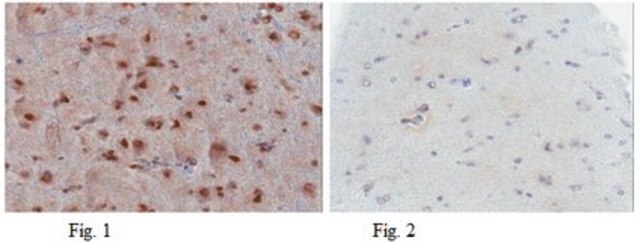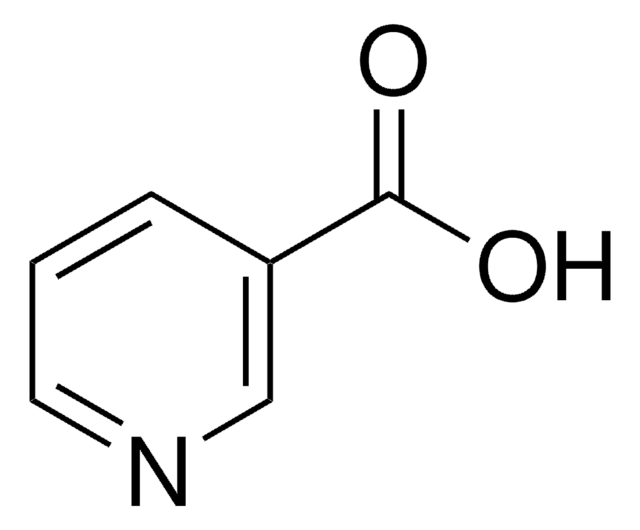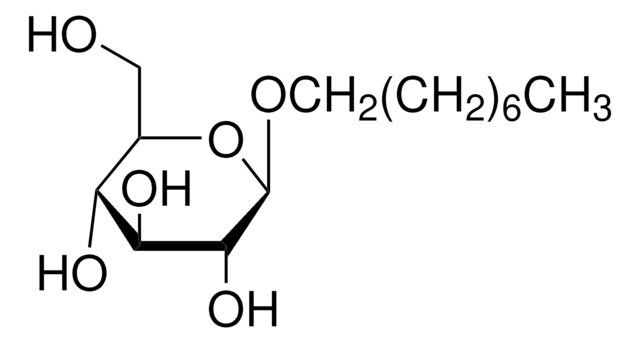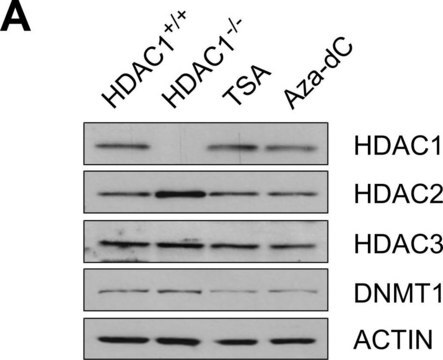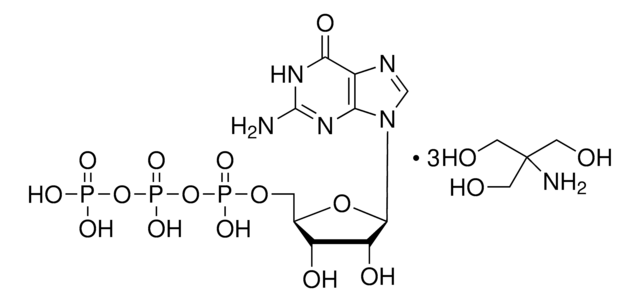OP29L
Anti-p53 (Ab-3) (Mutant) Mouse mAb (PAb240)
lyophilized, clone PAb240, Calbiochem®
About This Item
Empfohlene Produkte
Biologische Quelle
mouse
Qualitätsniveau
Antikörperform
purified antibody
Antikörper-Produkttyp
primary antibodies
Klon
PAb240, monoclonal
Form
lyophilized
Enthält nicht
preservative
Speziesreaktivität
hamster, rat, mouse, bovine, chicken, human
Darf nicht reagieren mit
Xenopus
Hersteller/Markenname
Calbiochem®
Lagerbedingungen
OK to freeze
Isotyp
IgG1
Versandbedingung
ambient
Lagertemp.
2-8°C
Posttranslationale Modifikation Target
unmodified
Angaben zum Gen
human ... TP53(7157)
Allgemeine Beschreibung
Immunogen
Anwendung
Frozen Sections (10 µg/ml)
Gel Shift (see comments)
Immunoblotting (5 µg/ml)
Immunofluorescence (1-20 µg/ml)
Immunoprecipitation (1 µg per sample)
Paraffin Sections (see application references)
Warnhinweis
Physikalische Form
Rekonstituierung
Hinweis zur Analyse
SK-OV-3 cells
A431, Hs27 (wild-type p53), or SK-BR-3 cells or breast carcinoma
Sonstige Hinweise
Greenblatt, M.S., et al. 1994. Cancer Res.54, 4855.
Barak, Y., et al. 1993. EMBO J.12, 461.
Kastan, M.B., et al. 1992. Cell71, 587.
Kuerbitz, S.J. 1992. Proc. Natl. Acad. Sci. USA89, 7491.
Lane, D.P. 1992. Nature358, 15.
Kastan, M.B., et al. 1991. Cancer Res.51, 6304.
Rechtliche Hinweise
Not finding the right product?
Try our Produkt-Auswahlhilfe.
Lagerklassenschlüssel
11 - Combustible Solids
WGK
WGK 3
Analysenzertifikate (COA)
Suchen Sie nach Analysenzertifikate (COA), indem Sie die Lot-/Chargennummer des Produkts eingeben. Lot- und Chargennummern sind auf dem Produktetikett hinter den Wörtern ‘Lot’ oder ‘Batch’ (Lot oder Charge) zu finden.
Besitzen Sie dieses Produkt bereits?
In der Dokumentenbibliothek finden Sie die Dokumentation zu den Produkten, die Sie kürzlich erworben haben.
Unser Team von Wissenschaftlern verfügt über Erfahrung in allen Forschungsbereichen einschließlich Life Science, Materialwissenschaften, chemischer Synthese, Chromatographie, Analytik und vielen mehr..
Setzen Sie sich mit dem technischen Dienst in Verbindung.
